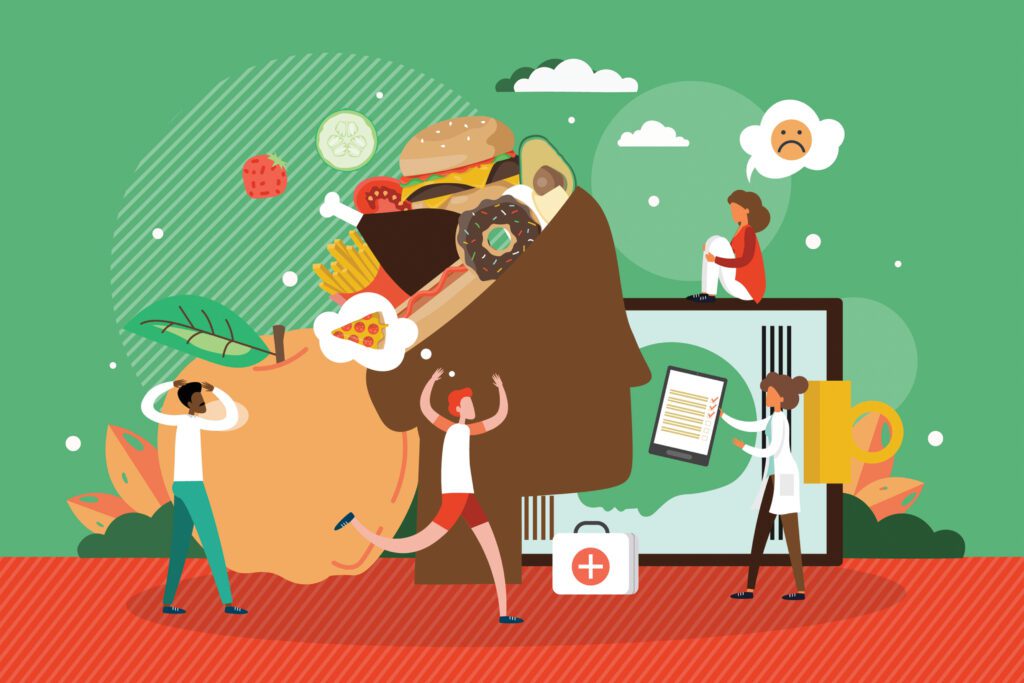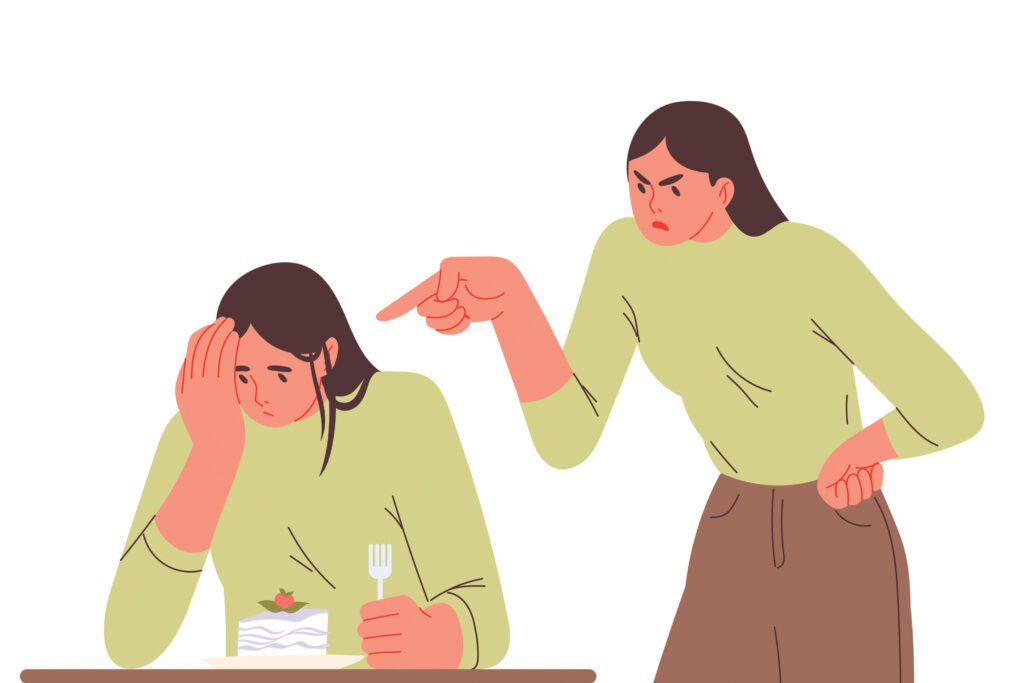How Emotions & Eating Can Be Linked
Have you ever had a bad day, only to come home and drown your sorrows in a pint of ice cream? Or do stressful work deadlines have you longing for your own personal pizza? Indulging in these enticing, yet not-quite-healthy foods is acceptable when eaten in moderation – in fact, letting go every now and then can encourage a balanced diet and a positive relationship with food. But frequent, heavy emotional eating is often a sign of a much more serious issue. Here, Dr. Gail Gnade, clinical director at Focus Treatment Centers, explores the topic of emotional eating and what you can do to curb the cravings once and for all.

What Is Emotional Eating?


“Emotional eating occurs when a person eats food in the absence of true hunger or physiological need. This behavior is an attempt, whether conscious or not, to alter their present emotional state,” Dr. Gnade shares. While not always, many cases of emotional eating involve binging foods that are high in calories, sugar, and fat. “It’s continually going back for ‘just one more cookie’ (but it’s really more than one), or, less impulsively, planning a secret visit to a drive thru later in the day,” she adds.
Whether stemming from anxiety, boredom, guilt, or any number of feelings, the tendency to emotionally eat is an ineffective coping mechanism that, all too often, leads to more guilt, shame, and self-blame.
And when it becomes a vicious pattern, emotional eating can be damaging to both your physical and mental health.
What Causes Emotional Eating?
Triggers for emotional eating may vary from one individual to the next. Dr. Gnade explains, “Eating in response to distressing emotional states, particularly as a means to ease discomfort or to distract, is a significant part of emotional eating.” Relationship problems, financial burdens, work pressures, or major life events, such as the death of a loved one, can be daily stressors that provoke emotional eating. “Unresolved physical or emotional traumas can also surface in a myriad of ways, including issues with eating,” she says.
Even pleasant feelings can trigger emotional eating. This may include rewarding yourself for a job well done with French fries, celebrating the holiday season with extra trips to the dessert table, or eating a piece of candy in order to connect to a fond childhood memory.
How Can You Stop Emotional Eating?
According to Dr. Gnade, the first step in gaining control over emotional eating is being able to recognize and name the emotions you’re feeling. “This is much easier said than done, as our feelings often surface as a sensation or urge – absent of a cognitive label like anger or sadness,” she shares. Becoming aware of those feelings will help you to distinguish between emotional and physical hunger.
Another important step for change is to create a “pause” between the impulse to eat and the action. “In that process, you can identify what you actually need, whether that’s reaching out to other people or participating in a soothing activity, like walking or yoga,” Dr. Gnade suggests. When you do sit down for a meal, try to practice mindful eating. Remove any distractions around you, like your laptop or smartphone, and focus on the taste and texture of each bite.
Dr. Gnade stresses that those struggling shouldn’t be afraid to build a trusted support system. “So many men and women don’t give themselves permission to seek help, and they suffer far too long from often debilitating emotional eating,” she says. “When the quality of your physical, emotional, and social life is affected negatively, and you realize things need to change, I recommend talking with a professional.” With the guidance of a professional, you may find profound relief and develop the coping skills necessary for a healthy, rewarding life.


Dr. Gail Gnade
Clinical Director, Focus Treatment Centers

